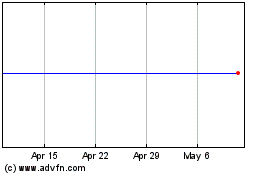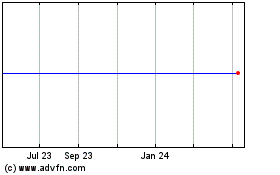EARNINGS PREVIEW: Consumer-Product Cos Take Steps To Defend Market Share
April 10 2012 - 2:12PM
Dow Jones News
TAKING THE PULSE: Consumer-product companies have struggled to
defend their market share as U.S. shoppers trade down from more
expensive, name-brand labels to save money, just as grocery chains
become more competitive by polishing up their private labels as
brands in themselves. To combat stagnant grocery sales, some
packaged-food companies are increasingly turning their focus to
snacks, which generally start at lower prices and offer the added
value of convenience, for which shoppers are willing to pay more.
Furthermore, prices for snacks can be raised more easily than those
of some grocery staples.
Cereal maker Kellogg Co. (K) reached a $2.7 billion deal with
Procter & Gamble Co. (PG) to buy its Pringles potato crisps,
while rival General Mills Inc. (GIS) recently bought Food Should
Taste Good Inc., a maker of tortilla chips in such flavors as sweet
potato and chocolate. Meanwhile, Kraft Foods Inc. (KFT) is nearing
the separation of its North American grocery business from its
snacks division.
To be sure, some consumer-product companies are also fighting
back by rolling out more discounts and coupons while increasing
their advertising budgets.
COMPANIES TO WATCH:
Coca-Cola Co. (KO) - reports April 17
Wall Street Expectations: Analysts polled by Thomson Reuters
recently expected a profit of 88 cents a share on $10.82 billion in
revenue, compared with 86 cents a share and $10.52 billion,
respectively, a year earlier.
Key Issues: The beverage giant plans to plow up to $650 million
in new, annual cost savings back into the marketing of its brands,
which continued to grow sales and volume during the fourth quarter.
Coke has said it doesn't plan to be dragged into a pricing war that
could erase some of the progress it has made by raising prices,
especially in markets close to home. The savings should also help
mitigate increasing commodity costs that are forecast to rise up to
$450 million this year after an $800 million spike in 2011.
PepsiCo Inc. (PEP) - reports April 26
Wall Street Expectations: Analysts forecast a profit of 67 cents
a share on $12.36 billion in revenue, compared with 74 cents a
share and $11.94 billion, respectively, a year earlier.
Key Issues: PepsiCo considered splitting its snack and beverage
businesses, but instead decided to boost marketing and advertising
by $500 million to $600 million this year, mostly in the U.S. where
its flagship Pepsi-Cola drink has dropped to the No. 3 spot behind
Coca-Cola and Diet Coke. Pepsi is also implementing a three-year
productivity program projected to save more than $500 million this
year and to reduce capital expenditures by 10% from 2011 levels.
The restructuring will cause core earnings growth to fall 5% this
year, but PepsiCo expects a return to long-term earnings growth in
the high-single digits in 2013.
Procter & Gamble Co. (PG) - reports April 27
Wall Street Expectations: Analysts forecast a profit of 93 cents
a share on $20.3 billion in revenue, compared with 96 cents a share
and $20.23 billion, respectively, a year earlier.
Key Issues: P&G issued a downbeat view for its current
quarter while slashing its full-year earnings projection in January
due primarily to unfavorable currency rates. But P&G lost
market share across a greater portion of its business lines in the
past quarter than previous ones, partly because competitors had
held back on raising prices. P&G has said it will rescind some
of those price increases.
The company also unveiled plans to eliminate about 4,000 more
jobs and cut its massive marketing budget by $1 billion as the
consumer-products giant targets savings of $10 billion by 2016. The
company has said cuts will come by thinning the ranks of marketing
executives and spending more efficiently, such as leaning more
heavily on lower-cost digital marketing.
Kraft Foods Inc. (KFT) - date to be announced
Wall Street Expectations: Analysts forecast a profit of 56 cents
a share on $13.04 billion in revenue, compared with 52 cents a
share and $12.57 billion, respectively, a year earlier.
Key Issues: The packaged-food giant has forecast 2012 organic
revenue growth of about 5%, including the negative impact from
product pruning in North America. The company has continued to
redirect cost savings into increased brand marketing and rolled out
new products in recent months, helping to offset some weakness in
the overall packaged-food market.
Kraft also decided its North American grocery business will keep
the Kraft Foods name after the planned split off, while the global
snacks business gets the new moniker Mondelez International
(pronounced mohn-dah-LEEZ). Kraft explained that combining "monde"
from the Latin word for world, and "delez," a so-called fanciful
expression of delicious, is meant to evoke the idea of a "delicious
world."
(The Thomson Reuters financial estimates and year-earlier
figures may not be comparable due to one-time items and other
adjustments.)
-By Melodie Warner, Dow Jones Newswires; 212-416-2283;
melodie.warner@dowjones.com
Kraft (NASDAQ:KFT)
Historical Stock Chart
From Mar 2024 to Apr 2024

Kraft (NASDAQ:KFT)
Historical Stock Chart
From Apr 2023 to Apr 2024
